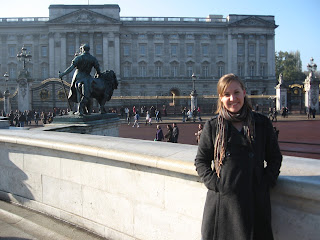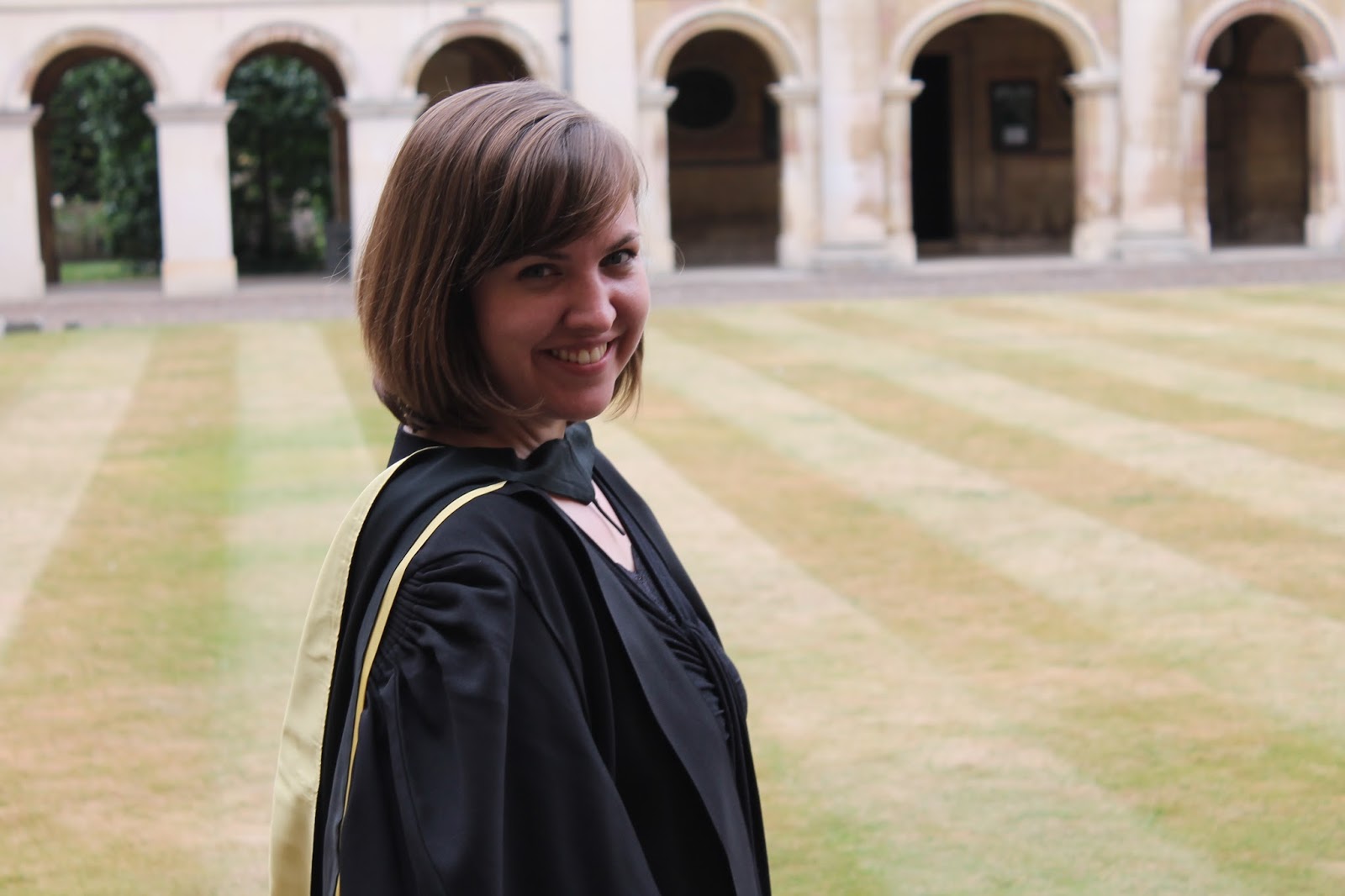The Paper I Took to London
Last week I traveled to London by myself. The goal was to meet my aunt and uncle next to the information booth outside of Exit 3 from the Victoria tube station at 10:35 am. When one does not have a cell phone, it is necessary to resort to 20th century methods of meeting up. Thankfully, it worked without (much) mishap and I was able to enjoy the rest of the day as a bona fide, unabashed tourist doing all the bona fide touristy things of London (Buckingham Palace, War Rooms, Westminster Abbey, Parliament, Big Ben, Thames, St. Paul's, Hard Rock Cafe, show [Oliver]). Thanks Aunt Gaylene and Uncle David!
Before the touristing and meeting up, though, there were two hours and forty five minutes of public transportation, first by bus, then by train, then by tube. To pretend to be a well-behaved Cambridge student, I brought an academic book to read: Jewish-Christian Dialogue: A Jewish Justification by David Novak. I also brought a piece of notebook paper and a pen, just to jot essay notes if I had any stunning revelations while on the train. This blog entry is a recreation of the notebook paper as it appeared when I returned home:
On one side, brief, incomplete essay notes on the question 'Is it important to distinguish Jewish-Christian relations from Jewish/non-Jewish relations more generally and what merits their study in their own right?':
"Ultimately, Jewish scholars such as Maimonides formulated a definition for relations 'out of necessity' (Novak 3) -- recognizing no integral value in the relationship but acknowledging the basic fact that Jews lived amongst Christians and had to formulate some code for such existence. David Novak formulates the question addressed by such scholars, asking 'How does a minority religion...' (see pg 4 of Novak). The Jewish need to address the 'Christian' problem in this way dominates Jewish writings for almost 2000 years - the reason (it) is important today is because the question has necessarily changed! Novak asserts that a 'radical change' in the formulation of Western society has occurred (4) and many scholars agree with him. According to such change, Jewish scholars need to reformulate a new code of Christian relations."
On the other side, this:
Before the touristing and meeting up, though, there were two hours and forty five minutes of public transportation, first by bus, then by train, then by tube. To pretend to be a well-behaved Cambridge student, I brought an academic book to read: Jewish-Christian Dialogue: A Jewish Justification by David Novak. I also brought a piece of notebook paper and a pen, just to jot essay notes if I had any stunning revelations while on the train. This blog entry is a recreation of the notebook paper as it appeared when I returned home:
On one side, brief, incomplete essay notes on the question 'Is it important to distinguish Jewish-Christian relations from Jewish/non-Jewish relations more generally and what merits their study in their own right?':
"Ultimately, Jewish scholars such as Maimonides formulated a definition for relations 'out of necessity' (Novak 3) -- recognizing no integral value in the relationship but acknowledging the basic fact that Jews lived amongst Christians and had to formulate some code for such existence. David Novak formulates the question addressed by such scholars, asking 'How does a minority religion...' (see pg 4 of Novak). The Jewish need to address the 'Christian' problem in this way dominates Jewish writings for almost 2000 years - the reason (it) is important today is because the question has necessarily changed! Novak asserts that a 'radical change' in the formulation of Western society has occurred (4) and many scholars agree with him. According to such change, Jewish scholars need to reformulate a new code of Christian relations."
On the other side, this:
- Musings on Public Transportation (including making the city seem small)
- Leicester Square as old friend
- Theater as old building really, not just a building decorated to look old and thereby fancy
- Lots of gold in the city -- on gates, clock towers, churches, theatres
- no drinking fountains
- ate dinner under John Lennon & Paul McCartney's shirts
- British accents & movies
desideratum
Those notes, needless to say, were not about my upcoming essay and the academic reading I was supposed to be doing. They were about thoughts I had during the day and wanted to save for later. Here I am repeating them verbatim on my blog, which I hadn't intended exactly. But I find that physical notes of memories become themselves nostalgic, and I relish those physical reminders of a good day now gone. Because I had actually intended to muse on some of those points in a future blog point, I will now elaborate those that need elaborating:
Musings on public transportation: I find public transportation odd, having not grown up with it. Perfect strangers come into very close contact for sometimes long amounts of time. Personal space disappears. Yet the experience is somehow very private. Everyone sits deep in thought, remembering his own things. And then the person squeezed into the small seat next to you stands up and walks out the door into the wide world of unknown experiences and thoughts that have no connection with your own life.
Leicester square as old friend: After spending (a lot) of hours standing in front of the Empire Theatre in Leicester square that fateful premiere day, I have to admit feeling a kind of comfort when walking past that exact spot on Tuesday evening, after a long day of seeing strange new sites. It felt, strangely, like coming home.
No drinking fountains: means I am always thirsty in Britain. Sometimes very much so.
British accents and movies: Before Cambridge my experience with British accents was almost exclusively limited to the big screen. Which means that now, sometimes, if I forget myself when surrounded by normal British people talking about ordinary British things, I find myself thinking I am living in a movie.
Oh, and about the word David Novak really likes: if you didn't know like I didn't.


Comments
Post a Comment